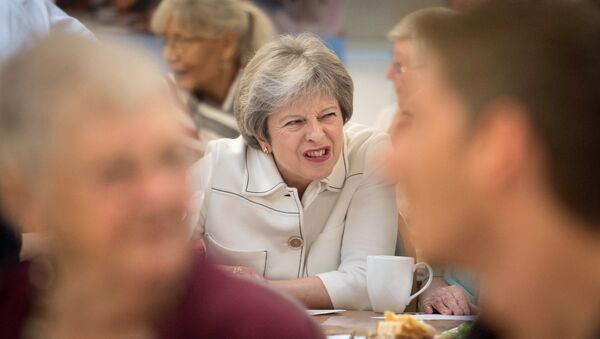Michel Barnier, the EU's chief Brexit negotiator, came under more pressure to find a compromise solution for the Irish border conundrum with the UK, The Telegraph reported on Wednesday, citing senior EU officials.
It is understood that Barnier is being pressured to accept Prime Minister Theresa May's plan to retain a frictionless border in Northern Ireland under her Brexit blueprint.
READ MORE: UK Government Need to Keep EU Laws After Brexit to Protect Environment — Scholar
To date, the Irish border issue remains one of the biggest stumbling blocks in Brexit negotiations. Britain rejects the European Union's push for keeping Northern Ireland in its customs union and single market, citing constitutional integrity concerns. If the EU retains regulatory authority with respect to trade over Northern Ireland, there would be physical checks on goods sent to or from the UK, which would inevitably hurt trade relations between Northern Ireland and the rest of the UK.
"There are legal issues, but we must be pragmatic, not dogmatic, this is ultimately only a backstop, and everyone wants to fix this through the future relationship," said a senior central EU diplomat familiar with the matter, as cited by The Telegraph.
Brussels negotiators opposed May's recent proposal to keep all of the UK in a customs union with the European Union, which sought to avoid a hard border in the Irish Sea. They argued that, according to Article 50 of the Lisbon Treaty, a UK-wide customs arrangement could not be negotiated as part of the Withdrawal Agreement. However, the sources say a compromise with the UK would dial down legal objections.
"If we have a solution with the UK, then who will stand up and say ‘this is not compatible with Article 50', that's ridiculous," the diplomat said. "The [European] Court [of Justice] is so political, they won't rule against it."
This comes as Brexit Secretary Dominic Raab said he expects a withdrawal agreement to be finalized by November 21. With the looming deadline for striking a deal, several EU states have voiced their concerns regarding Barnier's "backstop" proposal to keep Northern Ireland in the EU's customs union and its single market, claiming that Theresa May won't step away from her decision to keep Northern Ireland closely aligned to the UK.
The United Kingdom is scheduled to leave the European Union on March 29 next year. A transition period, which will see the UK follow the EU trade rules to smooth the path for future trade relations, will last until the end of 2020. However, the EU has recently floated the idea of extending the transition phase beyond the December, 2020 deadline over insufficient progress in talks with London.



